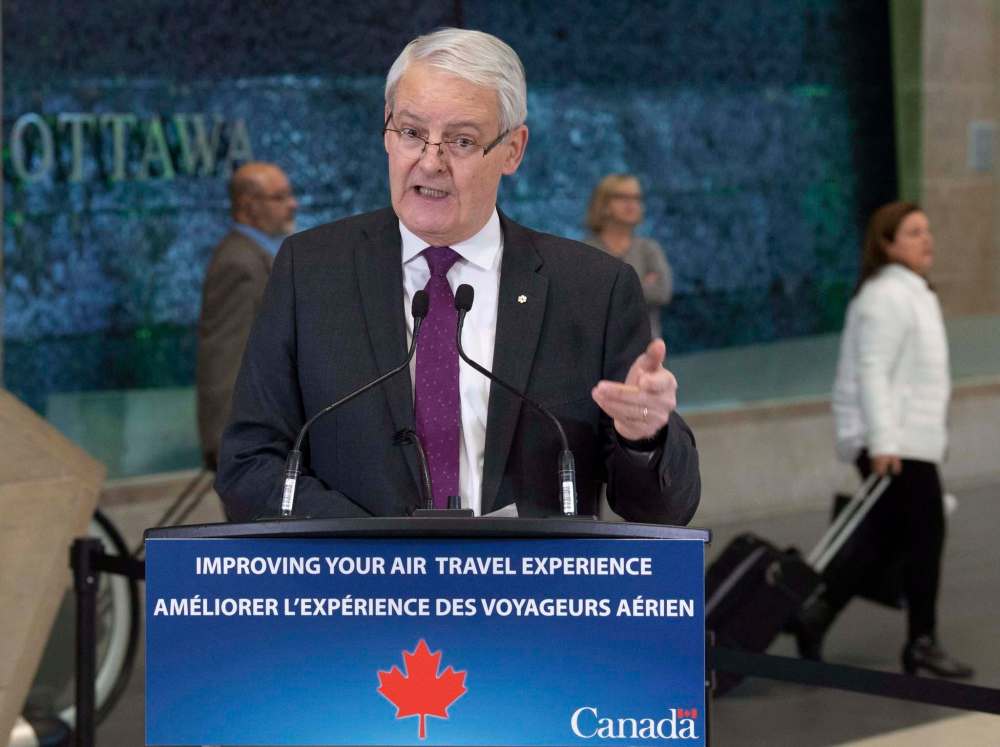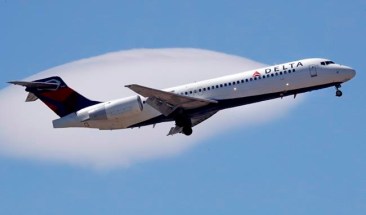Travellers’ hopes wrapped up in new rights bill
Read this article for free:
or
Already have an account? Log in here »
To continue reading, please subscribe:
Monthly Digital Subscription
$0 for the first 4 weeks*
- Enjoy unlimited reading on winnipegfreepress.com
- Read the E-Edition, our digital replica newspaper
- Access News Break, our award-winning app
- Play interactive puzzles
*No charge for 4 weeks then price increases to the regular rate of $19.00 plus GST every four weeks. Offer available to new and qualified returning subscribers only. Cancel any time.
Monthly Digital Subscription
$4.75/week*
- Enjoy unlimited reading on winnipegfreepress.com
- Read the E-Edition, our digital replica newspaper
- Access News Break, our award-winning app
- Play interactive puzzles
*Billed as $19 plus GST every four weeks. Cancel any time.
To continue reading, please subscribe:
Add Free Press access to your Brandon Sun subscription for only an additional
$1 for the first 4 weeks*
*Your next subscription payment will increase by $1.00 and you will be charged $16.99 plus GST for four weeks. After four weeks, your payment will increase to $23.99 plus GST every four weeks.
Read unlimited articles for free today:
or
Already have an account? Log in here »
Hey there, time traveller!
This article was published 20/12/2018 (2547 days ago), so information in it may no longer be current.
At this time of year, when many Canadians must travel by air to celebrate the festive season with family and friends, this must have seemed like an early present from the federal government.
Imagine, right there under the tree (provided, that is, that your tree is positioned alongside whichever newspaper, TV channel or online source you regularly consult for news): an announcement that air-rage-afflicted Canadians will soon be afforded the protection of a long-awaited travellers’ bill of rights.
“I believe it’s the best passenger rights bill in the world,” federal Transport Minister Marc Garneau enthused Monday, at a media event staged in the passenger arrivals area of Ottawa International Airport.

Calling the document fair, balanced, clear and transparent, Mr. Garneau predicted that the new regulatory regime will be in place by next summer, delineating passenger rights and specific financial compensation to be paid by airlines for such inconveniences as flight delays and cancellations, lost or damaged luggage and delays in which passengers are held on board an aircraft on the tarmac for extended periods.
The document currently carries the “proposed” label, and will be posted online by the Canadian Transportation Agency on Saturday, with an invitation for the public to review it and offer comments for the next two months.
Among the sure-to-be-welcome changes — which, uniquely, would apply to any airline flying into, out of or within Canada, regardless of country of origin — are rebates ranging from $400 to $1,000 for delays and cancellations, compensation of $900 to $2,400 for denial of boarding as a result of commercial decisions such as overbooking and payments of up to $2,100 for lost or damaged baggage.
Airlines would also be given strict guidelines for treatment of passengers during extended tarmac delays, including provision of functional washrooms, proper ventilation, food and drink and access to electronic communications. In cases of delays lasting longer than three hours, planes would be required to return to the gate.
In addition, the new regulations would prohibit airlines from removing a seated passenger from a plane, except for safety reasons, and would require airlines to allow parents to be seated next to their children without having to pay an extra seat-selection fee.
Travellers might be inclined to perceive an inkling of festive joy in Monday’s announcement by the transport minister, but that isn’t the sentiment expressed by longtime transportation-rights crusader (and former University of Manitoba professor) Gabor Lukacs; instead, the founder and co-ordinator of the advocacy group Air Passenger Rights calls the proposed bill “bad news” and “a slap in the face of Canadians” because it actually claws back some of the meagre few rights air travellers currently have.
Mr. Lukacs pointed out that the proposed rules would double the amount of time airlines are allowed to keep passenger aboard tarmac-delayed planes, from 90 minutes to three hours, and added that many of the monetary-compensation provisions are pointless because the regulations would allow airlines to avoid paying by hiding behind claims of maintenance and safety issues.
The latter concern, he argues, “is inconsistent with international standards, and perpetuates a lack of accountability for airlines.”
What are Canadian travellers to think, then? Well, perhaps that in keeping with the seasonal timing of Mr. Garneau’s announcement, they should view the proposed bill of rights the same way they consider the contents of a present under the tree: what’s inside will remain a mystery until it’s fully unwrapped.











